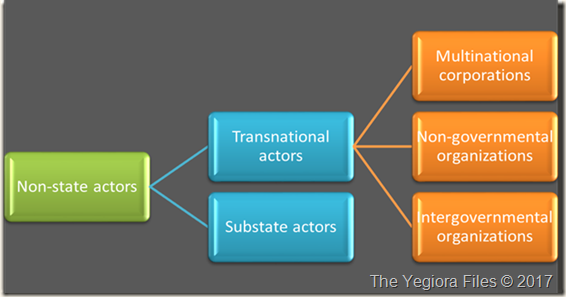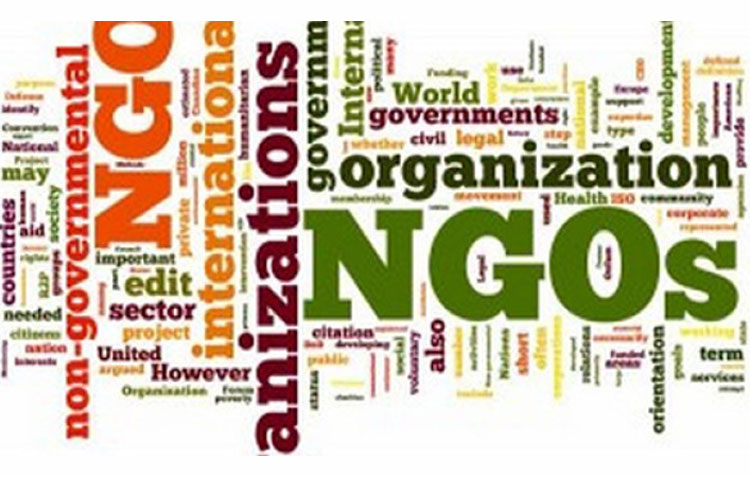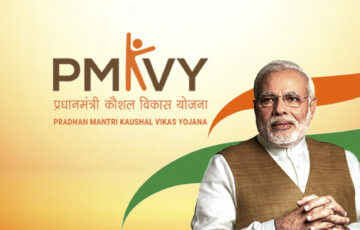Role of Non-State Actors in the Indian Governance System
Relevance
- GS Paper 2 Important Aspects of Governance, Transparency and Accountability, E-governance- applications, models, successes, limitations, and potential; Citizens Charters, Transparency & Accountability, and institutional and other measures.
- GS Paper 3 Role of external state and non-state actors in creating challenges to internal security.
- Tags: #Governance #GoodGovernance #NonStateActors #CivilSociety #GS2 #GS2Mains.
India’s governance system, one of the largest and most complex in the world, operates within a dynamic and diverse framework. While the government plays a central role, the involvement of non-state actors is increasingly influential.
Non- State Actors in Governance System
Non-state actors in a governance system refer to entities or organizations that are not part of the government but play a significant role in influencing policies, implementing programs, and contributing to the overall functioning of governance.
Non-State Actors
These non-state actors are diverse and encompass a wide range of entities, including:
- Civil society organizations (CSOs)
- Media, the private sector
- Private Sector
- Religious and cultural institutions
- Academia and think tanks, and
- Trade unions and labour associations.
Role of non-state actors in the Indian governance system
Civil Society Organizations
- Civil society organizations in India are instrumental in advocating for social, environmental, and human rights issues.
- They often act as a bridge between the government and marginalized communities.
- They include non-governmental organizations (NGOs), community-based organizations, and advocacy groups.
Grassroots Initiatives
- NGOs and community-based organizations often work directly with local communities.
Example
- Amnesty International India and Oxfam India actively engage in advocating, conducting policy research, and grassroots initiatives on matters such as gender equality, social justice, and education access.
- SEWA (Self-Employed Women’s Association) Organization have played a pivotal role in advancing the economic well-being of marginalized women.
Media and Press
- India’s vibrant media landscape is another formidable non-state actor in governance.
- Print, broadcast, and digital media outlets play a significant role in shaping public opinion, holding the government accountable, and influencing policy changes.
a. Investigative Journalism
- Media organizations conduct in-depth investigations into government actions and policies.
- Example: Sting operations by news channels have revealed corruption in public services.
b. Public Awareness
- The coverage of topics like environmental degradation, public health, and education drives citizens’ engagement and prompts authorities to take action.
- Example: Buxwaha Forest Issue gained public attention and ultimately forest clearance orders were stayed by the High Court.
Private Sector
- India’s private sector contributes substantially to the nation’s economic progress and indirectly impacts governance by virtue of its economic influence and role in job generation.
a. Job Creation
- Private companies are one of the largest job creators, they indirectly contribute to social stability and government’s welfare programs by reducing unemployment.
b. Corporate Social Responsibility
- The government mandates that large corporations allocate a portion of their profits to corporate social responsibility (CSR) activities.
- Example: Tata Group’s philanthropic arm, Tata Trusts, is involved in various social initiatives, including healthcare and education.
Religious and Cultural Institutions
- Religious and cultural organizations religious trusts are significant in managing vast properties and wealth, and they sometimes contribute to social and educational activities.
a. Political Influence
- Religious leaders and institutions often serve as intermediaries between communities and government, addressing grievances and advocating for their concerns and hence can influence voting patterns and political decisions.
b. Charitable Work
- Religious institutions run hospitals, schools, and charity programs. These facilities help fill gaps in the government’s service delivery, particularly in healthcare and education.
- Example: Akshaya Patra Foundation provides mid-day meals to school children.
Academia and Think Tanks
- Academic institutions and think tanks provide research and policy analysis on a wide range of issues, from economics to public health.
- They offer recommendations and expertise that inform government policies. Their intellectual contributions help policymakers make informed decisions.
a. Capacity Building
- Academic institutions offer capacity-building programs and training for civil servants. These programs enhance the government’s administrative and technical capabilities.
b. Policy Recommendations
Example: Think tanks like the Observer Research Foundation (ORF) and the Centre for Policy Research (CPR) conduct research and offer policy recommendations in areas such as foreign policy, economics, and governance.
Trade Unions and Labor Associations
- Trade unions and labor associations represent the interests of workers and employees.
- They negotiate labor conditions, wages, and workers’ rights with the government and employers.
a. Social Welfare Programs
- Labor associations often run social welfare programs for their members, including healthcare and housing initiatives. These programs support the welfare of workers and their families.
b. Worker Protection
- Trade unions advocate for labor rights and fair treatment. They influence government policies related to labor laws and working conditions.
- Example: The Minimum Wages Act is influenced by the demands of trade unions.
Other Example of Role played by Non-State Actors in Governance
Labor Unions and Workers Rights
Trade unions like the All India Trade Union Congress (AITUC) and the Bharatiya Mazdoor Sangh (BMS) work to secure workers’ rights and influence labour policies.
NGO-Driven Healthcare Initiatives
Organizations like the Public Health Foundation of India (PHFI) collaborate with the government to address healthcare challenges and improve health systems.
Reasons for Minimalist Role of Non-State actors in Indian Governance
- Legal and Regulatory Framework: India has a complex and extensive legal and regulatory framework that often limits the influence of non-state actors.
- Bureaucratic Challenges: Bureaucratic hurdles and red tape can hinder the active involvement of non-state actors in government affairs.
- Political Interference: Some non-state actors face political pressure, limiting their independence in governance matters.
- Limited Resources: Many civil society organizations and grassroots movements struggle with limited financial and human resources.
- Lack of Recognition: Non-state actors often face a lack of official recognition, which can restrict their influence on policy making.
- Capacity Building: Some organizations lack the capacity and skills needed for substantial engagement in governance.
- Cultural and Social Factors: India’s diverse cultural and social landscape can create challenges for non-state actors aiming for a broader impact.
- Historical Factors: Historical mistrust or unfavorable experiences with non-state actors can deter their active role in governance.
Challenges Faced By Non- State Actors
While the involvement of non-state actors in Indian governance is crucial, it is not without challenges.
1 Transparency and Accountability
- Enhancing transparency in the funding and operations of non-state actors is imperative.
- Strengthening accountability mechanisms and monitoring their actions is essential to prevent resource misuse.
2 Conflict of Interest
- Certain non-state entities might place their own interests above the public’s well-being, leading to worries about potential conflicts of interest.
- To address this, clear regulations and ethical standards are essential.
3 Government Dependence
- Excessive dependence on non-state actors can undermine the government’s core responsibilities. Balancing the roles and responsibilities of both the government and non-state actors is vital.
Way Forward
- Non-state actors play a significant and diverse role in India’s governance system. This includes civil society organizations, media, the private sector, religious institutions, academia, and labor associations.
- They contribute to addressing various societal challenges. However, finding the right equilibrium between their involvement and government oversight is an ongoing necessity.
- Through effective regulations and ethical standards, these non-state actors can continue their constructive contribution to India’s governance and development.
| Mains Question
Discuss the role and influence of non-state actors in India’s governance system. Examine the challenges they face and the reasons for the relatively minimal role of non-state actors in Indian governance. |









